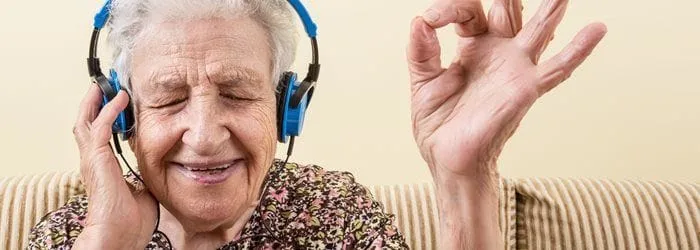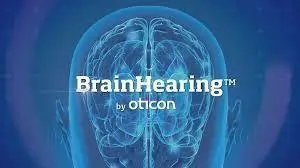Hitting A Tipping Point

After the holidays, it’s not uncommon for families to reach a tipping point subsequent to spending a few days visiting their elderly loved ones in their home. This is when it becomes clear that the elder wasn’t coping as well as he or she conveyed on the telephone. Previous conversations had led family members to believe things were fine; however, first hand observation painted a very different picture. It might be that their parent clearly had lost weight, medication bottles had not been refilled, and the home wasn’t as neat and tidy as in the past. Right after the holiday I was contacted by an adult daughter not knowing what to do saying, “Mom’s just different, she was always an impeccable dresser and clearly her clothes hadn’t been laundered, she was clearly confused and kept making excuses”. It was clear in talking that her Mom was no longer able to cope on her own and we discussed a plan of action.
Tipping points also can occur when there is an existing care arrangement, but it no longer works. There can be many different causes. For example, the person might now need more personal care or care both during the day and in the evening. There could be a need for constant medical attention. On the caregivers end, they might not be available to meet these new needs due to their work or family responsibilities and the scales tip. The tipping point might occur because the demands of caregiving have resulted in the condition of caregiver burnout. Caregiver Burnout Scale
Making a Change
The decision to make a change is not an easy one. Often adult children find it hard emotionally to assume the role reversal inherent in caring for their parent. It is a hard reality for a parent who doesn’t want to burden their children and wants to remain self-reliant. The process of making a change rarely comes as quickly as needed which can be frustrating to those who need to make a change. For families who are considering getting additional help, there is often a lot of guilt, financial worries and family disagreements. Making a change might be needed, but the process is usually challenging.
What To Do
- If you are assuming caregiving responsibilities it is essential to be clear about what care will be needed, and, most importantly, if you have the skills and availability to offer the help on a consistent basis.
- From the outset, enlist family and friends to assist with the responsibilities, finances and planning.
- Know your parent’s complete financial status and start financial planning with an elder law attorney. http://www.naela.org
- When more care is needed, know your viable options such as adult day care, in-home care, or assisted living.
- Bring in a professional who can assist with a plan of action and guidance to point your family to resources.
Need my assistance with your particular situation, contact me
Positive Effects of Music

The expression music soothes the soul hits the mark when looking for ways to help an individual with dementia. Music works because rhythmic and other well-rehearsed responses require little to no cognitive or mental processing. They are influenced by the motor center of the brain that responds directly to auditory rhythmic cues. A person’s ability to engage in music, particularly rhythm playing and singing, remains intact late into the disease process because, again, these activities do not mandate cognitive functioning for success. music & the brain All you need to consider is what type of music is engaging. For some it is classical for other country western, Frank Sinatra or religious hymns. People associate music with important events and are most responsive to music that they enjoyed during their late teens to early twenties.
Recognizing that music can be either stimulating or soothing, caregivers can select music to calm anxiety and confusion or stimulate activity. During bath or showering, add soothing music to create a calming environment. Try calming music at bedtime to encourage a peaceful transition to sleep. Playing calming music is also helpful while waiting to be seen by a healthcare professional. To stimulate activity such eating, dressing or exercising put on some upbeat music. Music offers an outlet for expression and is a vehicle to connect. As dementia progresses, it is common for individuals to lose the ability to communicate verbally. As the music plays, join in by singing along or humming, it will foster communication and build connectedness.
Music also offers benefits to those providing care. When dealing with resistance or reluctance to care, having music playing helps caregivers accomplish tasks. Singing songs together can offer a welcomed distraction. Music can also help to reduce caregiver’s stress. reducing caregiver stress Including music can improve visits with families and friends.
Given current technology, there are many sources available that offer a music selection. In addition to radio, cds and dvds, there are a variety of television channels, Sirius radio. Music can be downloaded to Ipods and Ipads. Sing Fit is an app specifically designed to engage individuals with dementia. To create a playlist go to the non profit organization Music & Memory musicandmemeory.org
Using headphones has been found to be successful for some individuals. Headphones tune out other sounds in the room that can be distracting.
For more fun and engaging ideas, contact me.
Hearing Loss and Dementia

Guest Contributor Dr. Anne Marie Olsen
What condition can cause an individual to withdraw from social situations, answer questions incorrectly and lead to poor verbal memory? You most likely answered memory loss or dementia however hearing loss is also an appropriate answer. When in an individual has some form of dementia they go through various tests and monitoring: cognitive and memory tests, blood tests, imaging scans etc. But has your loved one had a hearing test? Current research has shown a link between untreated hearing loss and cognitive decline. If a person is not hearing speech properly their brain has to work harder (known as an increase in cognitive load) to pay attention, fill in the blanks of what they did not hear and then form memory connections to remember or reflect on an unclear message.
It is important for individuals with any degree of cognitive impairment to have a hearing evaluation. Ideally the hearing test will be recommended at the first sign of mild cognitive impairment (if not before). But if your loved one has not had a hearing test it is strongly recommended to find out if a hearing loss is present. First, it is important to know if their hearing is contributing to an increased difficulty in understanding speech or remembering what was just said. If it is, then properly fit hearing aids or other listening devices may help to alleviate those cognitive strains. Once a person is hearing better, then other resources in the brain, not related to hearing may be available.
Recent studies have shown that individuals with an untreated hearing loss are more likely to develop cognitive decline compared to their normal hearing peers .hearing loss & cognitive impairment Those who have hearing loss and wear hearing aids may still develop dementia but at a slower rate than those who do not wear hearing aids. Finally it is recommended for people with various degrees of cognitive decline to engage in stimulating conversation and interact in social situations. These are some things that people with hearing loss avoid because of their difficulty to understand certain sounds of speech. Hearing aids will not prevent, delay or slow the progression of cognitive decline. However, hearing aids can help to improve independence and overall health as well as reduce caregiver burden.
DR. ANN MARIE OLSON has been helping individuals with hearing loss since 2001. As the founder of Sophisticated Hearing in 2005, she is deeply committed to helping individuals with hearing loss. In addition, she has served on the Hearing Loss Association of NJ's Board of Trustees since 2008. She is Vice President of the Hearing Loss Association of America's NJ chapter and VP of Communication for the NJ Academy of Audiology. She is also an adjunct professor at Montclair State University.



